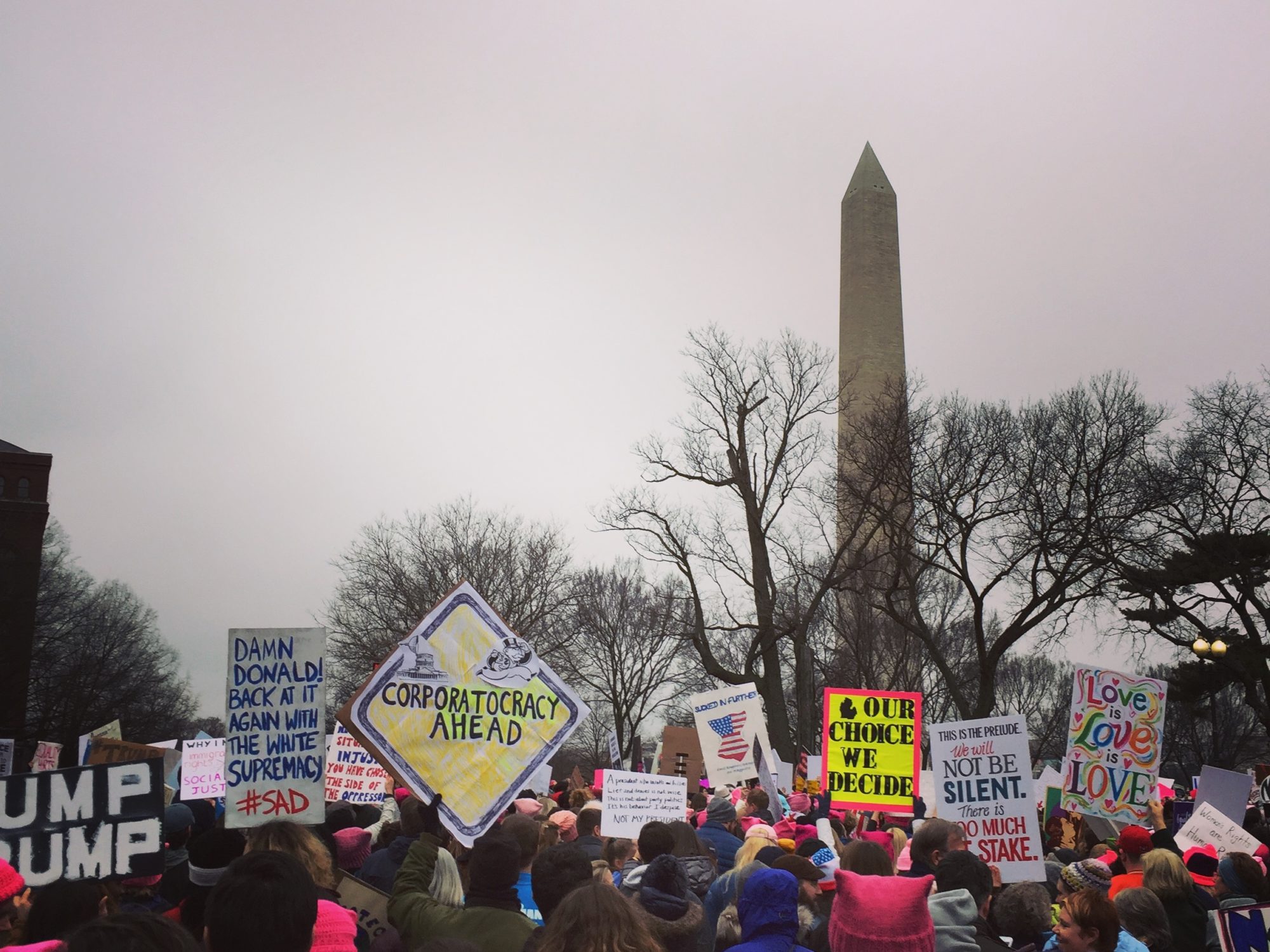Changemaker Catalyst Award recipient Miranda Stramel organized a bus trip for Tulane community members to join the 2017 Women’s March in Washington, D.C. Miranda is a Ph.D. candidate in Latin American Studies.

After our bus was loaded full of water, snacks and handmade signs, fifty-five enthusiastic Tulane undergraduates, graduate students, faculty and staff members slowly pulled away from the Reily Center. For a moment, we experienced a collective moment of, “are we really going to do this?” Had we really chosen to give up the first weekend of the spring semester, a weekend chock-full of social activities, to spend a total of forty sleepless hours on a bus, with very little idea of what awaited us? That brief apprehension was interrupted as the first film in a marathon of empowering movies started up on the overhead TVs, and by the time the bus rose onto the I-10 ramp from Claiborne, the group was cheering and feeling confident. We were all answering a call to defend the rights won by those that had come before us. The group had come together quickly and boldly to respond to a wave of misogynistic, xenophobic and other discriminatory rhetoric. We were on a mission, even if we didn’t yet fully understand it.
At a loss for ideas about how to make our voices heard in response to political promises made to roll back equality measures, the Women’s March on Washington in January 2017 was a collective event that called “for the protection of our rights, our safety, our health, and our families — recognizing that our vibrant and diverse communities are the strength of our country.” Up to 500,000 made it to Washington on January 21, 2017, with up to five million global marchers participating worldwide in eighty-one countries. Tulane was present for one of the largest political demonstrations of all time. The Tulane community showed up to “send a bold message to our new administration on their first day in office, and to the world, that women’s rights are human rights.” Tulanians were present to make it clear that immigration reform, healthcare reform, reproductive rights, the natural environment, LGBTQ rights, racial equality, freedom of religion, and workers’ rights are all important issues to women and their families.
made to roll back equality measures, the Women’s March on Washington in January 2017 was a collective event that called “for the protection of our rights, our safety, our health, and our families — recognizing that our vibrant and diverse communities are the strength of our country.” Up to 500,000 made it to Washington on January 21, 2017, with up to five million global marchers participating worldwide in eighty-one countries. Tulane was present for one of the largest political demonstrations of all time. The Tulane community showed up to “send a bold message to our new administration on their first day in office, and to the world, that women’s rights are human rights.” Tulanians were present to make it clear that immigration reform, healthcare reform, reproductive rights, the natural environment, LGBTQ rights, racial equality, freedom of religion, and workers’ rights are all important issues to women and their families.
By giving Tulane students an affordable opportunity to make themselves visible to lawmakers, the bus trip to the Women’s March offered riders a chance for direct participation in democracy and an introduction to political action. Campus institutes, departments and student organizations were incredibly supportive of the effort. Since the march, the cross-campus network formed during the bus ride has kept each other informed of ongoing actions and avenues through which members of the Tulane community can make their voices heard on related issues of concern. For many students, this was their first experience getting involved with a civil society event related to social issues, but for most it will not be their last. Whether through working with local officials, forming or joining civil society groups, or even running for office themselves in the future, the effects of the trip will undoubtedly be multiplied.

